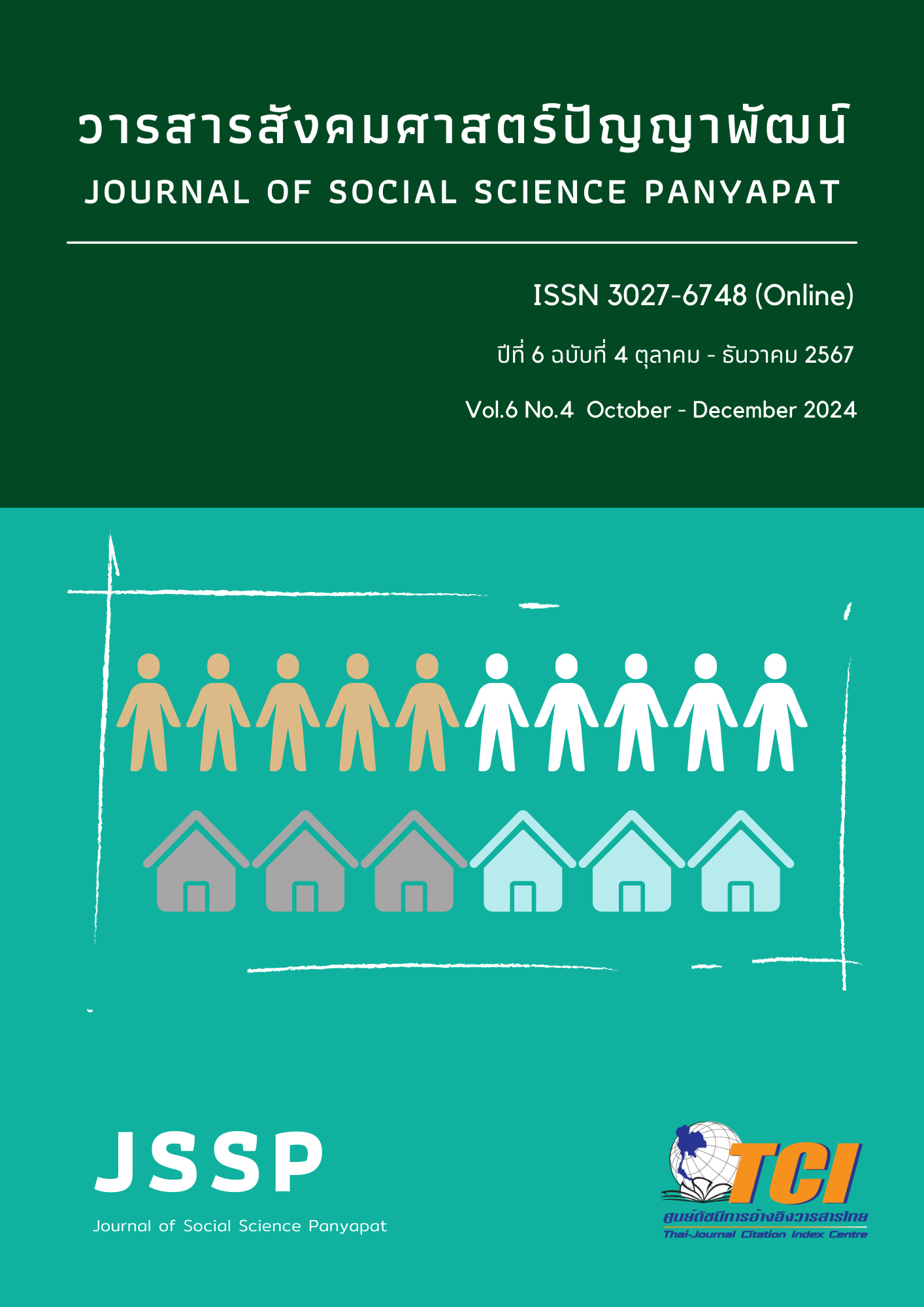Academic Administration Guidelines for Professional Competency Development of Auto Mechanics Field of Nakhon Si Thammarat Technical College
Keywords:
Academic Management Guidelines, Professional Competency Development, Automotive Technology Professional CompetenciesAbstract
This study aims to: (1) investigate the current state of academic management in the Automotive Technology program at Nakhon Si Thammarat Technical College, and (2) develop guidelines for academic management to enhance professional competency development in the Automotive Technology program at Nakhon Si Thammarat Technical College. The research employed qualitative approach, utilizing in-depth interviews with 15 key stakeholders, 5 key informants, as well as focus groups with 7 experts. The research instruments were validated by three experts. Data analysis was conducted using inductive thematic analysis. The findings revealed that: 1) The current state of academic management in the Automotive Technology program at Nakhon Si Thammarat Technical College encompasses monitoring teaching and learning activities, addressing instructional issues, evaluating and assessing student performance in accordance with the curriculum, providing up-to-date teaching materials and equipment, supporting the development of worksheets, teaching aids, instructional materials, classrooms, and laboratories, all aimed at achieving continuous quality and educational standards. 2) Guidelines for enhancing professional competencies through academic management focus on three competency domains: knowledge, skills, application and responsibility. These guidelines include: (1) Departments should develop teaching plans aligned with curriculum competencies. (2) Curriculum development efforts should promote teacher understanding of the curriculum and effective instructional practices. (3) Assessment and evaluation activities should support teacher understanding of assessment and evaluation criteria and real-world contexts. (4) Instructional materials development should receive budgetary support and encouragement for teacher production. (5) Dual-system vocational education should involve collaboration with workplaces in developing training plans to align learner competencies with labor market demands.
References
จำนง ขันกสิกรรม (2556). การนำเสนอแนวทางการดำเนินงานของฝ่ายวิชาการในวิทยาลัยสารพัดช่างสถาบันการอาชีวศึกษา ภาคเหนือ 4. (ครุศาสตรมหาบัณฑิต, มหาวิทยาลัยราชภัฏนครสวรรค์).
วิภา ทองหงำ. (2554). รูปแบบการบริหารงานวิชาการของโรงเรียน สังกัดกรุงเทพมหานคร. (ปรัชญาดุษฎีบัณฑิต, มหาวิทยาลัยศิลปากร).
สำนักงานคณะกรรมการการอาชีวศึกษา. (2562). กรอบคุณวุฒิอาชีวศึกษาแห่งชาติ. กรุงเทพฯ: สำนักอำนวยการ 10.
สำนักงานคณะกรรมการการอาชีวศึกษา. (2562). มาตรฐานการอาชีวศึกษา. กรุงเทพฯ: สำนักอำนวยการ.
สำนักงานคณะกรรมการการอาชีวศึกษา. (2562). หลักเกณฑ์และแนวปฏิบัติการจัดการศึกษา ระดับประกาศนียบัตรและระดับประกาศนียบัตรวิชาชีพชั้นสูง. กรุงเทพฯ: วิทยาลัยเทคนิคมีนบุรี.
สำนักงานคณะกรรมการการอาชีวศึกษา. (2562). หลักสูตรประกาศนียบัตรวิชาชีพ ประเภทวิชาอุตสาหกรรม สาขาวิชาช่างยนต์. กรุงเทพฯ: สำนักอำนวยการ.
Downloads
Published
How to Cite
Issue
Section
License
Copyright (c) 2024 Journal of Social Science Panyapat

This work is licensed under a Creative Commons Attribution-NonCommercial-NoDerivatives 4.0 International License.


